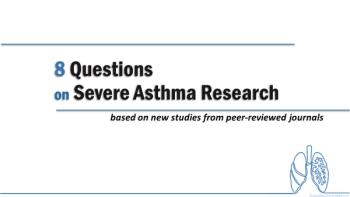
New study findings on asthma exacerbation risk prediction, rapid steroid reduction, and patient perception of disease lead this quick quiz.

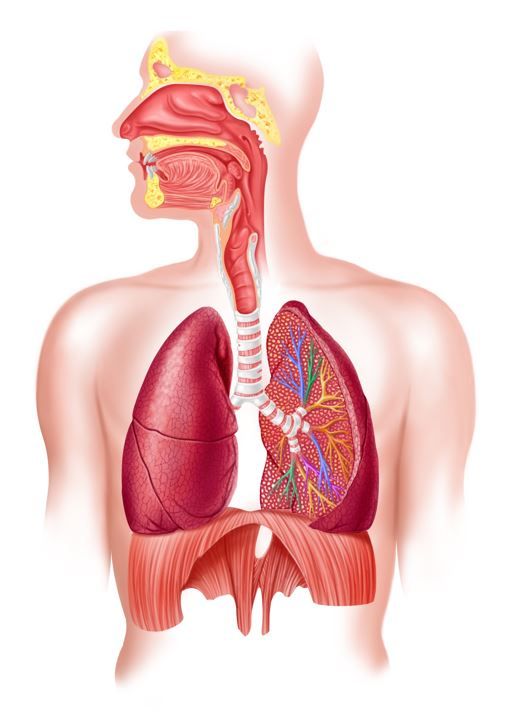
Novel Agent for Severe Asthma Halves Exacerbation Rates Across Respiratory Comorbidities

New study findings on asthma exacerbation risk prediction, rapid steroid reduction, and patient perception of disease lead this quick quiz.

In the majority of studies that reported racial/ethnic data, White participants were highly overrepresented and Black/Hispanic/all Other underrepresented.

Patients with severe, uncontrolled asthma given tezepelumab experienced a reduction in asthma symptomatic days, found a new analysis of the NAVIGATOR trial.
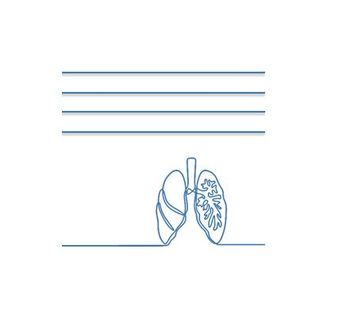
Research summaries on GINA revisions, a steroid-reduction algorithm, factors that predict asthma exacerbation risk, and more.

Tezepelumab significantly reduced exacerbations that required hospitalization or an emergency department visit in a new analysis of patients with moderate-to-severe, uncontrolled asthma.

New research highlights several key risk factors that are likely to accelerate the progression from asthma to COPD, including older age and prior tobacco use.
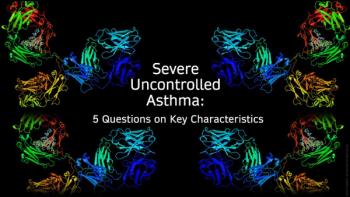
Optimal use of biologic therapy for severe uncontrolled asthma rests on understanding of the disease itself. Try this quick quiz to test your knowledge.

New data from the phase 3 NAVIGATOR trial found tezepelumab treatment reduced inflammatory biomarkers of severe, uncontrolled asthma in as little as 2 weeks.

Adults with asthma who had a prior hospitalization or required 2 or more courses of oral corticosteroids were at increased risk of poor COVID-19 outcomes, according to a new study.

New data from the phase 3 NAVIGATOR trial demonstrate superior efficacy of tezepelumab to reduce asthma exacerbations in severe disease year round.

A team of researchers published proposed criteria for the discontinuation of biologics for patients with severe asthma that has been controlled.

Adults with atopic disease and asthma had a 38% decreased risk of COVID-19 infection, according to a new UK study.

The Guideline Toplines slide-show feature offers busy primary care physicians at-a-glance summaries of new and updated clinical guidelines across therapeutic areas.
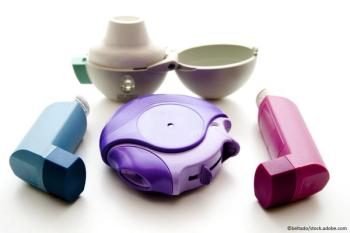
Approximately three-quarters of asthma patients who began multiple-inhaler triple therapy had stopped using it 6 months later, according to a new study.

CHEST 2021: Study shows vaping raises the odds of developing asthma and COPD, especially in older adults, women, and Hispanic persons.

CHEST2021: The CHRONICLE study of biologics to treat severe asthma found reductions in exacerbations of more than 50% in patient groups not included in clinical trials.

In patients with severe asthma dependent on OCS, dupilumab reduced OCS dose and improved the odds of no longer requiring OCS, suggests research presented at CHEST 2021.

CHEST 2021: Patients with severe asthma who received tezepelumab compared with placebo demonstrated rapid improvement in morning and evening peak expiratory flow.

A variety of exposures in the work environment can cause asthma in some employees, according to new research presented at ERS Virtual International Congress 2021.

The albuterol/budesonide combination significantly reduced the risk of severe exacerbations and improved lung function in mild-to-moderate asthma.

A new study found several risk factors associated with severe adult-onset asthma, including smoking, NSAID-exacerbated respiratory disease, and sibling count.

Tezepelumab, a novel human monoclonal antibody that shows promise to reduce exacerbations across asthma phenotypes, was granted FDA Priority Review.

For patients with moderate-to-severe persistent asthma, new guidelines from the NAEPP recommend SMART, particularly for patients with a recent disease exacerbation.
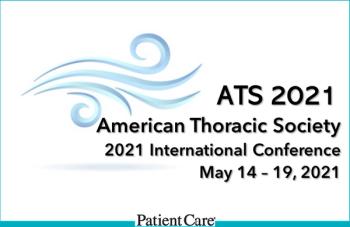

ATS 2021: In a subgroup of oral corticosteroid-dependent patients with severe asthma from the newly released NAVIGATOR study, tezepelumab reduced exacerbations and improved lung function.